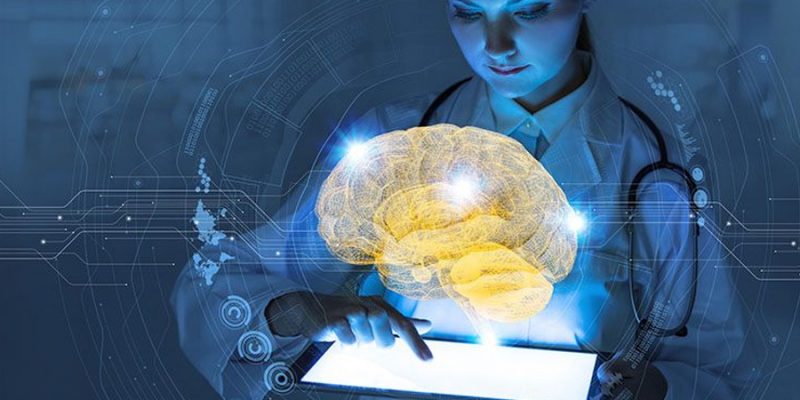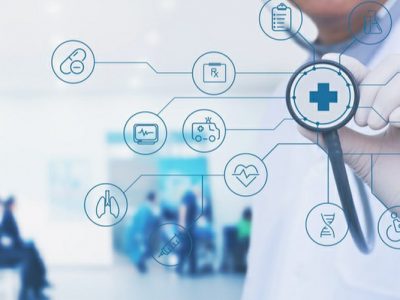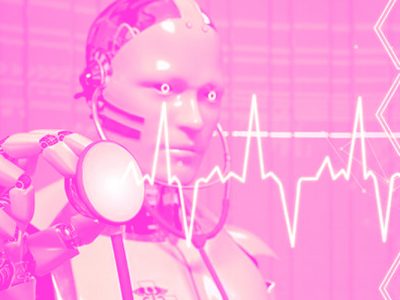
Is the application of AI in healthcare as successful as predicted and promised?
With the unfolding of new AI techniques, professionals are implementing its widespread application in the Healthcare sector and Pharmaceutical industry. Deploying techniques like FinTech in HealthTech and more add to the patient benefits in this Health IT system.
AI in Healthcare got a boost due to its speed and efficiency in recovering data from various sources using techniques like Big Data Analytics and Cloud Computing to result in better patient outcomes and maintain data security.
Imbuing AI in the Healthcare sector:
The introduction of AI in the Healthcare Industry is one of the biggest achievements in the advancement of technology. The laborious works of clinicians and physicians become less so with the advent of HealthTech in the traditional Healthcare systems.
The improvement of AI in multiple fields of Healthcare Sectors is impressive like better outcomes in hospital management, cardiology, neurology, and stroke care.
With the accelerated development in fields like Big Data Analytics and deep Machine learning, with the access to massive medical data from patients’ history, the application of AI in the healthcare industry is attaining success over time.
Application of AI in healthcare:
With the accelerated development in fields like Big Data Analytics and deep machine learning, with the access to massive medical data from patients’ history, the application of AI in the healthcare industry is attaining success over time. An AI device can scan through huge amounts of data and subsequently reproduce the appropriate information and accurate feedback.
However, in order to assist the clinicians in a relevant field, AI tools need a massive volume of data to ‘learn’ from them to offer the adequate ‘response’ or information required to analyze and predict from them. The various AI algorithms thus perform these calculations and help the clinicians make better and more accurate decisions.
Although the application of AI is widespread throughout the healthcare industry, its research is focused on mainly three diseases, Cancer, Cardiology or Cardiovascular diseases, and Neurology or Nervous system-related diseases.
The attention towards these three diseases is critical because the early detection and analysis can cure or even prevent a patient from death, and these can be done through the analysis and prediction of biomarkers using ML and NPL, which are the aiding benefit generated by AI. The unstructured clinical narrative texts are not easily analyzable and thus are being focused on by the AI devices, which first convert them to machine-understandable electronic medical records (EMR) and help further interpretation by the Clinicians and physicians. Machine Learning is applied to analyze and improve prediction in the performance of stroke treatment.
Machine Learning analyses structured data like imaging and EP whereas, Natural Language Processing extracts information from unstructured texts and data like clinical notes and medical journals. The NLP procedures target turning texts to machine-readable structured data, which can then be analyzed by ML techniques. ML and NLP in conjunction train the AI for better performance.
An efficient AI-based Healthcare sector must contain all three components of AI: ML, NPL, and the sophisticated training of the algorithms. The IBM Watson system has shown promise in this field as it has both ML and NLP modules and has made promising progress in oncology.
Obstacles of using AI in Healthcare:
1. Current regulations lack standards to assess the safety and efficacy of AI systems, which define AI as a “general wellness product”. AI needs to get approval from FDA certification for critical care, which is still a long way to go.
2. In order to work well, AI systems need to be trained (continuously) by data from clinical studies. Thus the AI tools need a massive volume of data to extract the appropriate feedback and information from the database stored. The resulting drawback of this requirement is that without providing a high volume of quality data, AI can slack in its process and efficiency. Also, the task of exchanging and supplying data into the system is strenuous for the clinicians and more so because they do not receive any such incentive due to this effort.



















